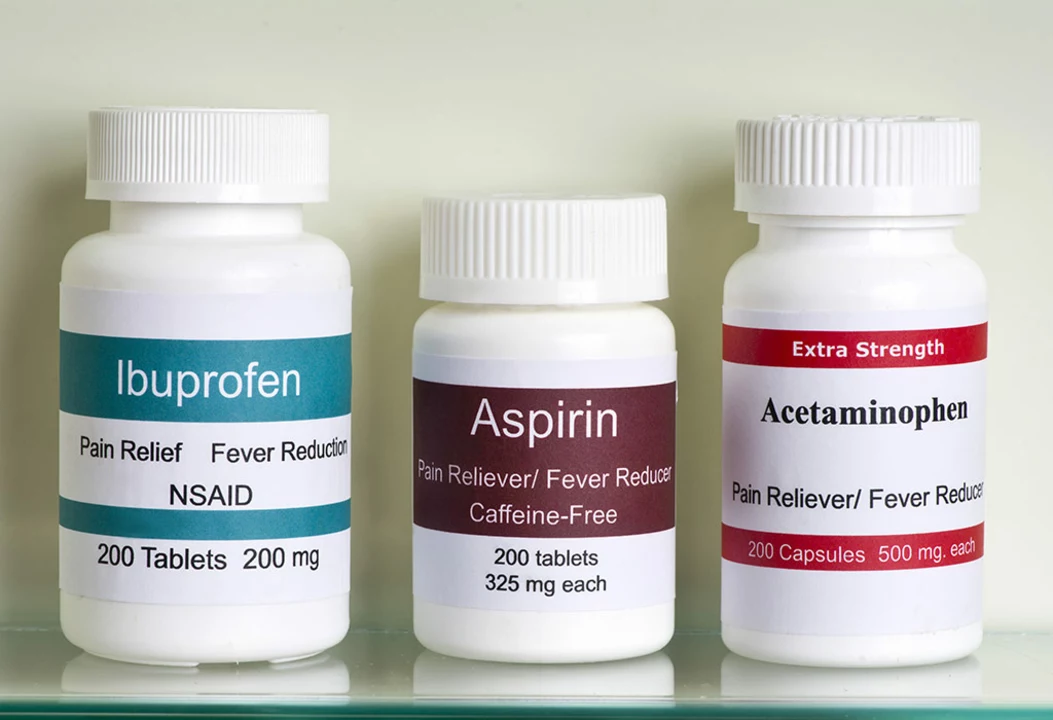Introduction: Acetaminophen and Asthma
As a blogger, I have come across various studies and discussions about the potential link between acetaminophen and asthma. Acetaminophen, commonly known as paracetamol, is a widely used pain reliever and fever reducer. Asthma, on the other hand, is a chronic respiratory condition characterized by inflammation and narrowing of the airways, leading to difficulty in breathing. In this article, I will be exploring this potential link and discussing the various aspects of this relationship.
The Use of Acetaminophen in Children with Asthma
Children with asthma often experience fever and pain, and acetaminophen is one of the most commonly prescribed medications to address these symptoms. However, research has shown that acetaminophen use may exacerbate asthma symptoms in some children. In a study published in the journal Pediatrics, researchers found that children with asthma who were given acetaminophen experienced a significant increase in asthma symptoms, including wheezing and shortness of breath. This raises concerns about the safety of acetaminophen use in children with asthma, and whether alternative pain relief options should be considered.
Acetaminophen and the Development of Asthma in Children
Several studies have investigated the potential link between acetaminophen use during pregnancy or early childhood and the development of asthma in children. A study published in the International Journal of Epidemiology found that prenatal exposure to acetaminophen was associated with an increased risk of developing asthma in children. Another study conducted by researchers at the University of Oslo found that children who were given acetaminophen during their first year of life had a higher risk of developing asthma by the age of 18. These findings suggest that acetaminophen exposure, both prenatal and during early childhood, may contribute to the development of asthma.
Acetaminophen and Oxidative Stress
One possible explanation for the link between acetaminophen and asthma is the effect of the drug on oxidative stress in the body. Oxidative stress occurs when there is an imbalance between the production of free radicals and the body's ability to neutralize them. This can result in inflammation and damage to cells, which may contribute to the development of asthma. Acetaminophen has been shown to increase oxidative stress, which could potentially exacerbate asthma symptoms or increase the risk of developing the condition.
Acetaminophen and the Immune System
Another potential explanation for the link between acetaminophen and asthma is the drug's effect on the immune system. Some research has suggested that acetaminophen may suppress the immune system's response to viral infections, which could increase the risk of asthma development. Additionally, acetaminophen has been shown to alter the balance of immune cells known as T-helper cells, which play a crucial role in the immune response to allergens. This alteration could potentially contribute to the development of asthma or exacerbate existing symptoms.
Acetaminophen Alternatives for Asthma Sufferers
Given the potential link between acetaminophen and asthma, it may be worth considering alternative pain relief options for individuals with asthma. Nonsteroidal anti-inflammatory drugs (NSAIDs) such as ibuprofen and naproxen are commonly used alternatives to acetaminophen, but they may also have their own risks and side effects. It is essential to consult with a healthcare professional before making any changes to your medication regimen to ensure the best course of action for your specific situation.
Limitations of Current Research
It is important to note that the research on the link between acetaminophen and asthma is still ongoing, and there are limitations to the current studies. Many of the studies are observational, meaning they can only show a correlation between acetaminophen use and asthma, not a direct cause-and-effect relationship. Additionally, factors such as genetics, environmental exposures, and other medications may also play a role in the development of asthma, making it difficult to pinpoint a single cause.
Future Research Directions
As research on the potential link between acetaminophen and asthma continues, it is essential to explore the underlying mechanisms that may contribute to this relationship. Future studies should investigate the effects of acetaminophen on oxidative stress, immune system function, and other factors that may contribute to the development of asthma. Additionally, research should focus on identifying potential alternatives to acetaminophen for pain relief in individuals with asthma, as well as strategies to minimize the risk of asthma development in children exposed to acetaminophen during pregnancy or early childhood.
Conclusion
In conclusion, there is growing evidence suggesting a potential link between acetaminophen use and asthma, particularly in children. While the exact cause of this relationship is still unclear, factors such as oxidative stress and immune system function may play a role. As research continues, it is crucial for individuals with asthma and their healthcare providers to be aware of this potential link and consider alternative pain relief options when appropriate. Ultimately, a better understanding of the relationship between acetaminophen and asthma will help to inform treatment decisions and improve the quality of life for those living with this chronic respiratory condition.







KALPESH GANVIR
30 April 2023 - 03:31 AM
I’ve been giving my son acetaminophen for fevers since he was a baby, and I never thought twice about it. Reading this made me pause. He’s had mild asthma since age 3, and I wonder now if there’s a connection. Not blaming anyone-just trying to be more aware. Maybe I’ll talk to his pediatrician about ibuprofen next time.
April Barrow
30 April 2023 - 19:21 PM
The studies cited show correlation, not causation. Many children with asthma are exposed to more viruses and fevers, which leads to more acetaminophen use-not the other way around. Confounding variables like pollution, maternal smoking, or breastfeeding duration aren’t fully accounted for. Don’t panic yet.
Melody Jiang
2 May 2023 - 05:48 AM
It’s funny how we treat medicine like it’s just a tool, when it’s really a conversation between chemistry and biology. Acetaminophen isn’t evil-it’s a bandage on a deeper wound. The real question isn’t whether it causes asthma, but why our bodies are so fragile in the first place. Are we over-medicalizing normal childhood illness? Or are we failing to address environmental triggers like air quality, diet, stress? The drug is a symptom, not the disease.
alex terzarede
3 May 2023 - 14:11 PM
Meta-analysis from 2021 in The Lancet Respiratory Medicine found a small but statistically significant association between prenatal acetaminophen and childhood asthma, with an odds ratio of 1.18. But when adjusted for maternal infection and fever, the effect dropped to 1.07. That’s barely above noise. Still, if you’re pregnant and don’t need it, skip it. Better safe than sorry.
Dipali patel
5 May 2023 - 02:04 AM
THEY KNOW. THEY’RE HIDING IT. PHARMA COMPANIES PAY OFF THE FDA. ACETAMINOPHEN ISN’T JUST LINKED TO ASTHMA-IT’S DESIGNED TO CREATE CHRONIC ILLNESS SO WE KEEP BUYING IT. I READ A WHISTLEBLOWER’S EMAILS. THEY CALL IT THE ‘LONG-TERM REVENUE STRATEGY.’ MY DAUGHTER GOT ASTHMA AFTER HER 6-MONTH VACCINES AND A FEW DOSES OF TYLENOL. COINCIDENCE? I THINK NOT. #FreeTheData #StopTylenol
Jasmine L
6 May 2023 - 11:10 AM
My mom always said, ‘If you can’t sleep, you can’t heal.’ I’ve switched my kid to ibuprofen for fevers since reading this, and honestly? He sleeps better. Not sure if it’s the med or just less stress, but I feel better about it. 🤗
lisa zebastian
6 May 2023 - 15:15 PM
Acetaminophen depletes glutathione, which is the body’s master antioxidant. Glutathione deficiency is a known biomarker for asthma, autism, and autoimmune disorders. This isn’t speculation-it’s biochemistry. The CDC has known this since 2008. They just don’t want you to connect the dots. Why? Because replacing Tylenol with NSAIDs would cost Big Pharma billions. This is chemical manipulation disguised as medicine.
Jessie Bellen
8 May 2023 - 02:15 AM
Stop overreacting. Kids get asthma because of dust mites, pet dander, and mold-not because Mom gave them Tylenol for a cold. You’re turning a complex disease into a villain story. Wake up.